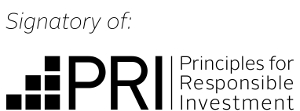Wealth Management: Mosaique Insights – Beyond shareholder value

Clement Boisson, Portfolio Manager, and William Haggard, Head of Investment Insights, Rothschild & Co Bank AG
Assessing companies using ESG factors is a complex process that involves various stages
“Wealth entails not only consumption but also waste, not only production but also destruction. It is this waste and destruction, which has increased enormously with output and income, that threatens the space we live and move in.”1
1The Wealth and Poverty of Nations: Why Some are So Rich and Some So Poor, David S. Landes (1998)
Pressure is growing on companies and investors to look beyond the pure pursuit of shareholder value to broader stakeholder values. Against this backdrop, our portfolio management team has been busy over the last year developing our approach to addressing environmental, social and corporate governance (ESG) factors when investing our clients' wealth.
In our article The language of responsibility, we highlight the breadth of approaches investors can take when addressing the topic of ESG. This range of options, coupled with a lack of universally accepted definitions and standards in this field, has led to accusations of 'greenwashing'2 as clients struggle to assess - objectively - the purpose for which their money has been put to use. Thankfully, measures are being taken by governments and regulators to combat greenwashing as discussed by James Laing of our Global Advisory division in Shareholder engagement and activism. But where does this leave Mosaique portfolios?
2Disingenuous information from an organisation to present an environmentally responsible public image
Step one: exclusion
At Rothschild & Co Wealth Management, we begin our consideration of ESG factors by applying an exclusion policy to the assets we invest in. This requires excluding specific sectors or companies from the portfolios with a high controversy rating, in line with international conventions such as the Ottawa Convention on anti-personnel landmines or Oslo Convention on cluster munitions.
We also exclude all companies with business practices that infringe on human rights, the environment or are linked with corruption, as they appear on Norges Bank's conduct-based exclusion list. As the managers of the world's largest sovereign wealth fund and an established industry leader in the field of ESG, Norges Bank sets an important industry benchmark when it comes to exclusionary conduct that we wish to integrate in our security screening process.
Nevertheless, exclusion policies quickly reach their limits and we appreciate some sectors that are controversial to some clients, such as the drinks or tobacco industry, may be less so for others. The picture becomes increasingly nuanced when these activities form just a small part of a company's broader revenue-generating activities, as is the case with many conglomerates. In such cases, we prefer to look at businesses individually - we're aware that excluding such businesses can only be a preliminary step to integrating ESG factors in portfolios.
To fully achieve the latter, we must not only adopt a negative or exclusionary approach to screening securities, but also take positive steps by actively integrating ESG criteria in our research and portfolio management processes.
Step two: ESG integration
After the exclusionary approach to selecting assets, the second step we take is to consider two additional criteria in our security selection process:
- a global ESG performance rating; and
- a carbon reduction policy rating.
We measure a company's global ESG performance rating using proprietary ESG research and assess each company's impact across 10 ESG factors (Figure 1).
In assessing this impact, we look at a company's ESG track record against its peers to compare activities in the same industry. This relative ESG scoring includes an analysis of how a company is taking quantifiable action to improve its existing ESG standards (see box 'Case study: Diageo').
Case study: DiageoDiageo is one of the best-rated ESG stocks in our portfolios. The company produces and distributes alcoholic drinks, a sector with its share of controversies. Nevertheless, Diageo has:
Diageo is an example of how active steps to improve a company's ESG credentials contribute to a strong relative score. |
Turning to carbon reduction policies, we have decided to make this a standalone factor when screening securities as potential investments. With the Paris Agreement on tackling climate change pushing carbon reduction initiatives to the forefront of the environmental debate, we consider this a priority for the companies and funds we invest in. Therefore, we measure not only a security's absolute carbon footprint through its products, services and operations, but also the efforts companies are taking to reduce their carbon dependency through proactive governance, reduction targets and measurable performance (see box 'Case study: Energias de Portugal').
Case study: Energias de PortugalYou might think an energy company active in thermal electricity production is an unlikely candidate when assessing carbonreduction policies. Yet Energias de Portugal has implemented an aggressive carbon reduction programme through its industryleading investment in renewable energy. The latter energy source now makes up for 75% of the company's total capacity. Energias de Portugal now has a clear target to reduce its existing greenhouse gas emission by 90% by 2030 from a 2005 baseline - a policy we will monitor closely. |
Preserving wealth for the long term
By taking both an exclusionary and active approach to implementing ESG factors, our goal for Mosaique portfolios is to ensure that wealth is managed responsibly (see The language of responsibility). We measure this at an overall portfolio level by taking the weighted average of the ESG scores held by individual securities across the portfolio.
It should be emphasised that a sizeable number of ESG factors already form part of our analysis of what makes a good business, which fits well within our goal to preserve and grow clients' wealth over the long term.
Fundamentally, it is sound practice when looking for great investments to understand the strengths and risks associated with a company's business model from an ESG perspective. For example:
- Environment: companies that neglect their environmental footprint will face regulation and sanctions, which are risks that have a material impact on shareholder value.
- Society: employee satisfaction, an ethical supply chain and the fair treatment of subcontractors all matter when building a longterm, durable business.
- Governance: transparent and sound company policies regarding the appointment of directors minimises the risk of fraud, promotes a competent and diverse workforce and allows shareholders' interests to be heard.
As these examples show, we think it prudent to integrate ESG factors into all of our security selection processes as a key part of understanding the businesses and funds we invest in.
This process also helps us to identify risks within clients' portfolios. We can monitor companies with a history of ESG controversies to assess the risk they pose to portfolios. This approach includes an awareness of whether a company has a history of litigation, regulatory fines or employee injuries arising from ESG violations. Tracking these risks helps us to better understand the culture of the companies we invest in and alert us to potential risks.
Where do we go from here?
The full integration of ESG factors into our research and investment process provides us with a formidable opportunity to ensure our selection of securities and the impact of portfolios upholds positive ESG standards. We believe a pragmatic approach to these issues can only enhance our knowledge and understanding of the companies we invest in, and help us better manage risk in portfolios, without detracting from performance.
As we develop our ESG capabilities, we look forward to discussing the ESG activities we are undertaking at Rothschild & Co Wealth Management and how, with shareholder engagement, we seek to uphold these values as custodians of our clients' wealth.
Did you know?Rothschild & Co Wealth Management is a signatory to the UN Principles for Responsible Investment (PRI). As signatories, we publicly commit to developing and contributing towards a more sustainable financial system via six underlying principles. These are:
|
